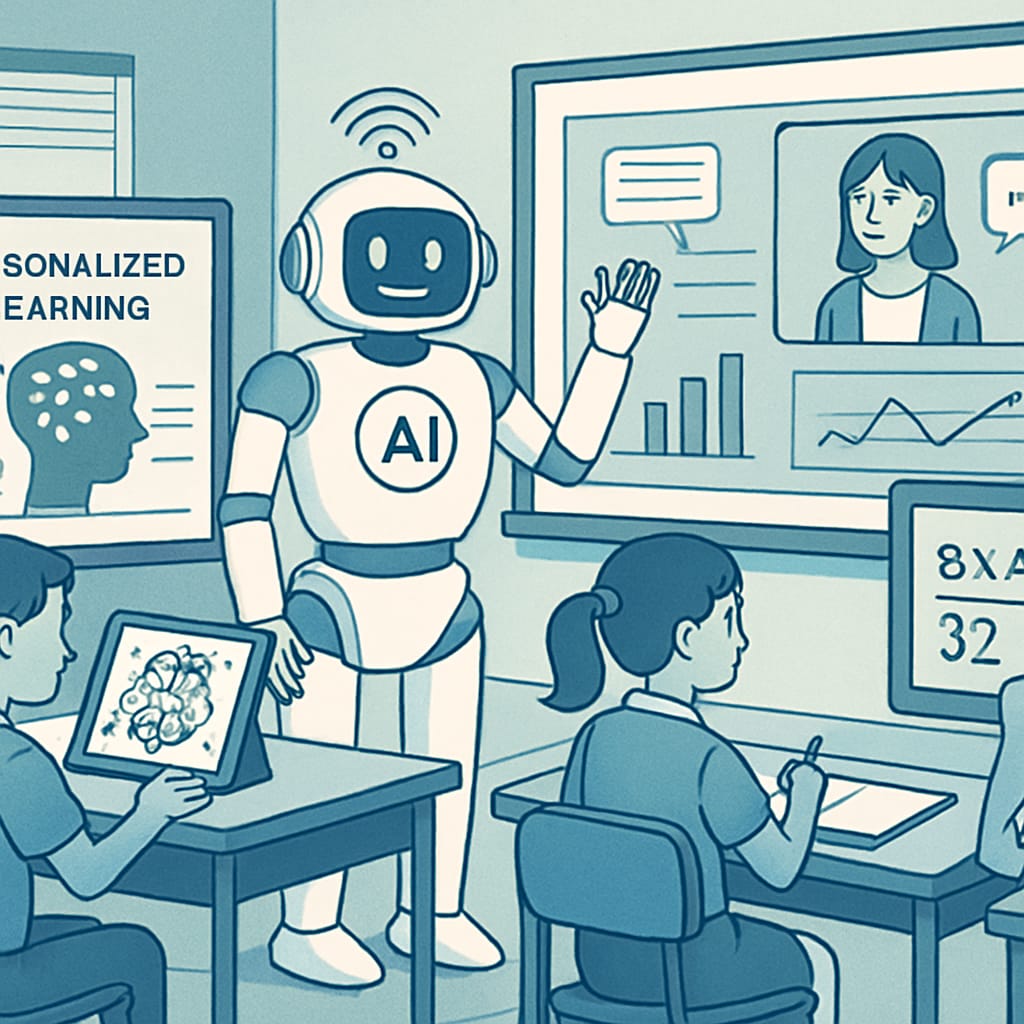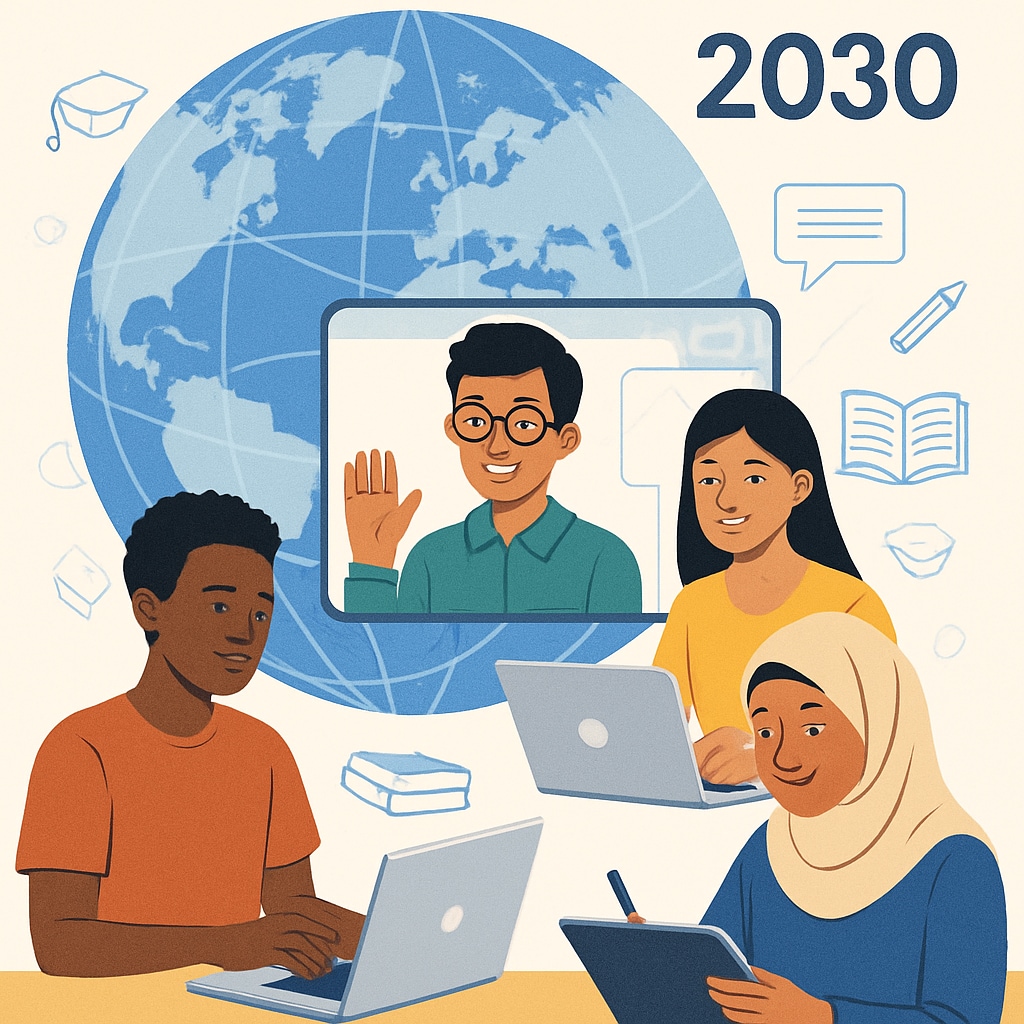By 2030, artificial intelligence (AI) and globalization will have fundamentally reshaped the education landscape. The integration of AI in education, combined with the accelerating pace of global interconnectedness, is driving unprecedented changes in teaching methodologies, student experiences, and the role of educators. These trends are not just technological but also cultural, creating an education ecosystem that is more personalized, accessible, and interconnected than ever before. This article examines the key ways AI and globalization are shaping the future of learning and what we can expect in the coming decade.
AI-Powered Learning: Revolutionizing Classrooms
Artificial intelligence is no longer a futuristic concept; it is already transforming how education is delivered. By 2030, AI will play a central role in personalizing learning experiences. Adaptive learning platforms, powered by AI, can analyze student performance in real-time and provide customized content to match individual needs. For example, tools like intelligent tutoring systems can identify where a student struggles and offer targeted exercises to address those gaps.
Additionally, AI enables automated grading, freeing up teachers to focus on more creative and interpersonal aspects of teaching. Virtual assistants and chatbots are also likely to become common fixtures in classrooms, answering routine questions and providing instant feedback. These advancements make learning more efficient and engaging while allowing educators to dedicate more time to meaningful interactions with students.

Globalization and the Rise of Cross-Cultural Education
Globalization is another transformative force shaping education. By 2030, cultural and technological exchanges will blur traditional boundaries, creating a more global perspective in learning. Online platforms and virtual exchange programs will enable students from different parts of the world to collaborate on projects, fostering cross-cultural understanding and teamwork skills.
Moreover, multilingual education will become more prevalent as globalization emphasizes the importance of communication in a globalized workforce. Schools will adopt curricula that focus on global issues such as climate change, sustainability, and cultural diversity, preparing students to tackle real-world challenges from an international perspective. This interconnectedness will also make high-quality education more accessible, especially in regions where traditional resources are limited.

The Evolving Role of Educators
While AI and globalization bring significant changes, the role of educators will remain indispensable. However, their responsibilities will evolve. By 2030, teachers will act more as facilitators and mentors rather than traditional knowledge providers. They will guide students in navigating AI-driven tools and help them develop critical thinking, creativity, and emotional intelligence—skills that machines cannot replicate.
Professional development will also adapt to equip teachers with the skills needed to integrate technology and global perspectives into their teaching. Educators will need to stay updated on the latest tools and strategies to remain effective in this dynamic environment.
Challenges and Ethical Considerations
Despite its potential, the integration of AI and globalization into education comes with challenges. Data privacy, for example, is a major concern as AI systems collect and analyze large volumes of student data. Ensuring equitable access to technology is another issue, as not all regions or schools may have the resources to implement advanced tools.
Additionally, cultural sensitivity must be maintained in a globalized curriculum. While international collaboration is beneficial, it is essential to respect local traditions and values. Policymakers, educators, and technologists will need to work together to address these ethical considerations and create an inclusive framework for the future of education.
A Vision for 2030: What Lies Ahead
By 2030, the fusion of AI and globalization will create an education system that is more dynamic, inclusive, and future-ready. Students will benefit from personalized learning experiences tailored to their strengths and weaknesses, while access to global resources will expand opportunities for collaboration and innovation. Educators will take on more versatile roles, balancing technology integration with the development of essential human skills.
However, achieving this vision will require thoughtful planning and collaboration among governments, educators, and technology providers. By addressing challenges and maximizing opportunities, the education landscape in 2030 promises to be a powerful catalyst for personal and societal growth.
Readability guidance: Short paragraphs, clear transitions, and concise sentences are used to enhance readability. Lists and examples are included where appropriate to summarize key points.


